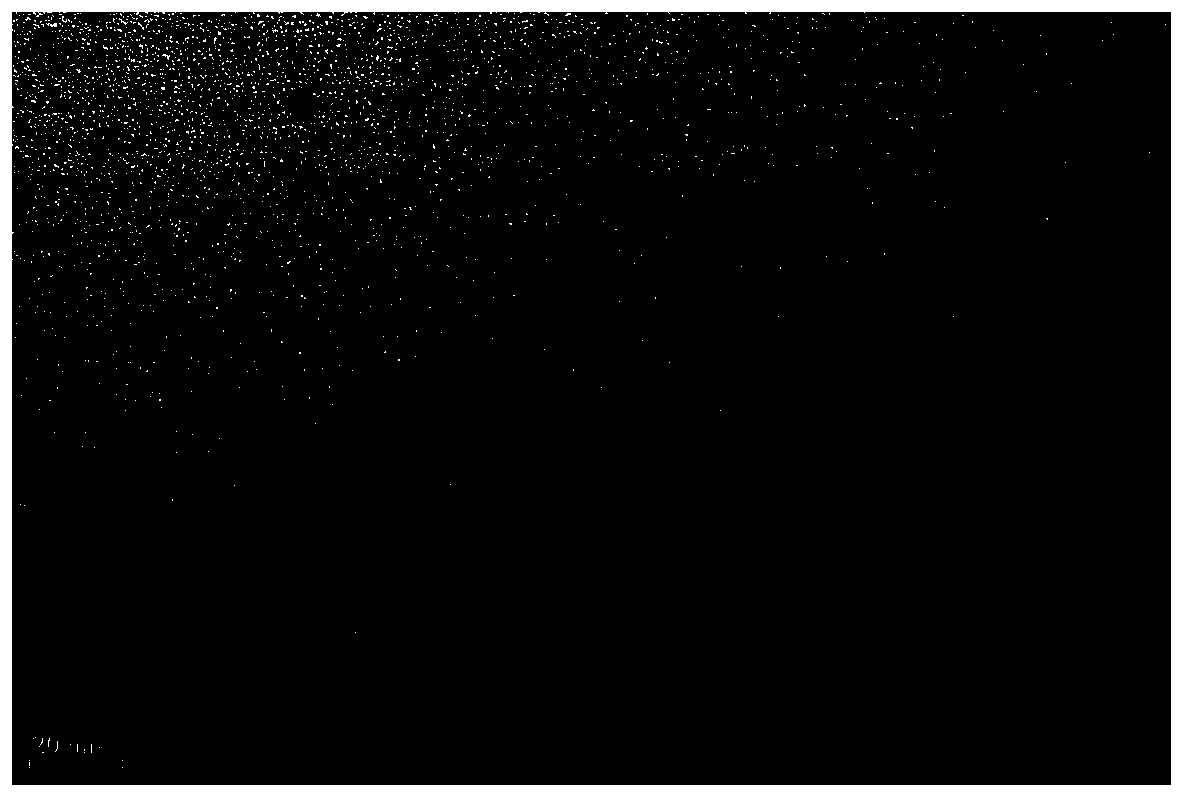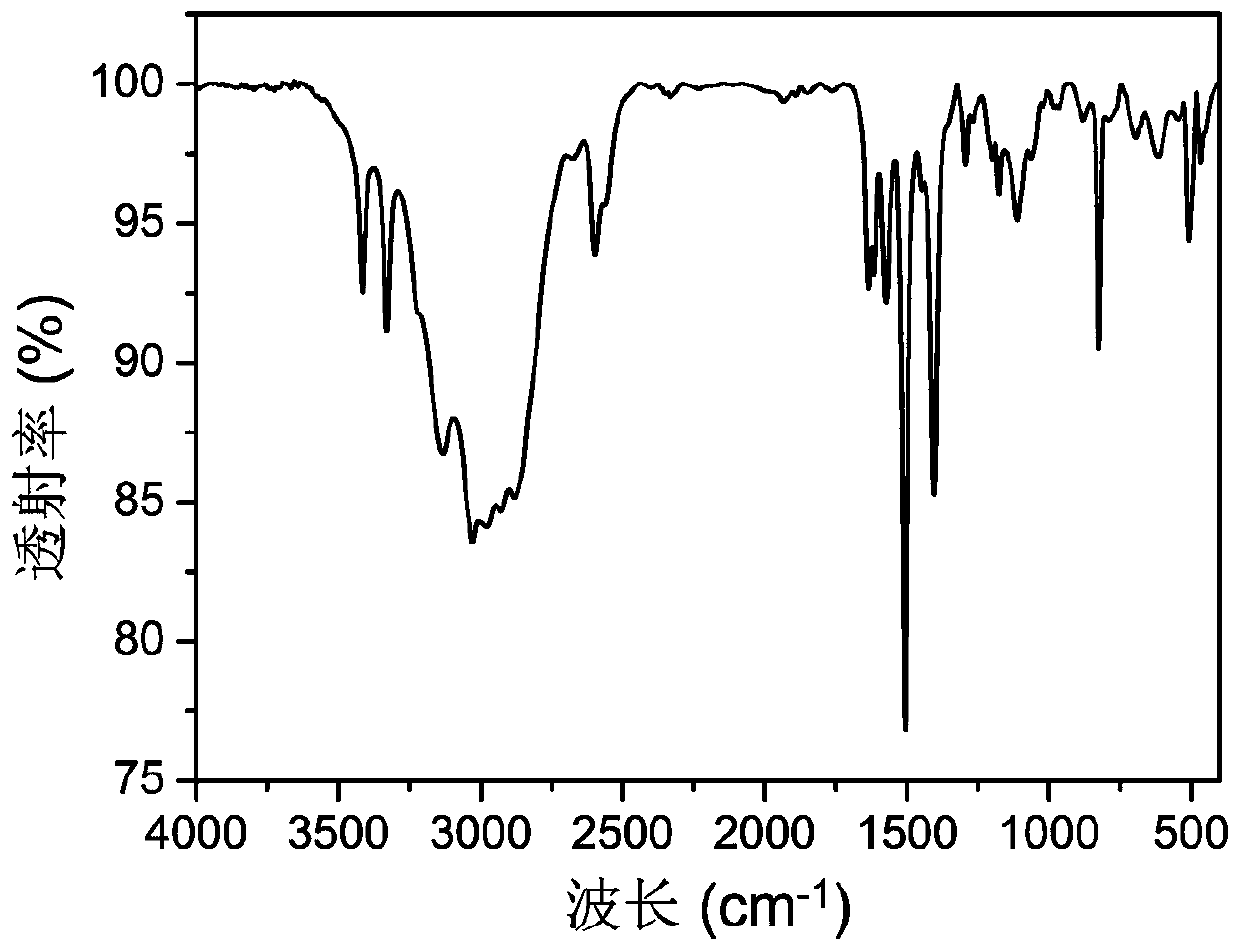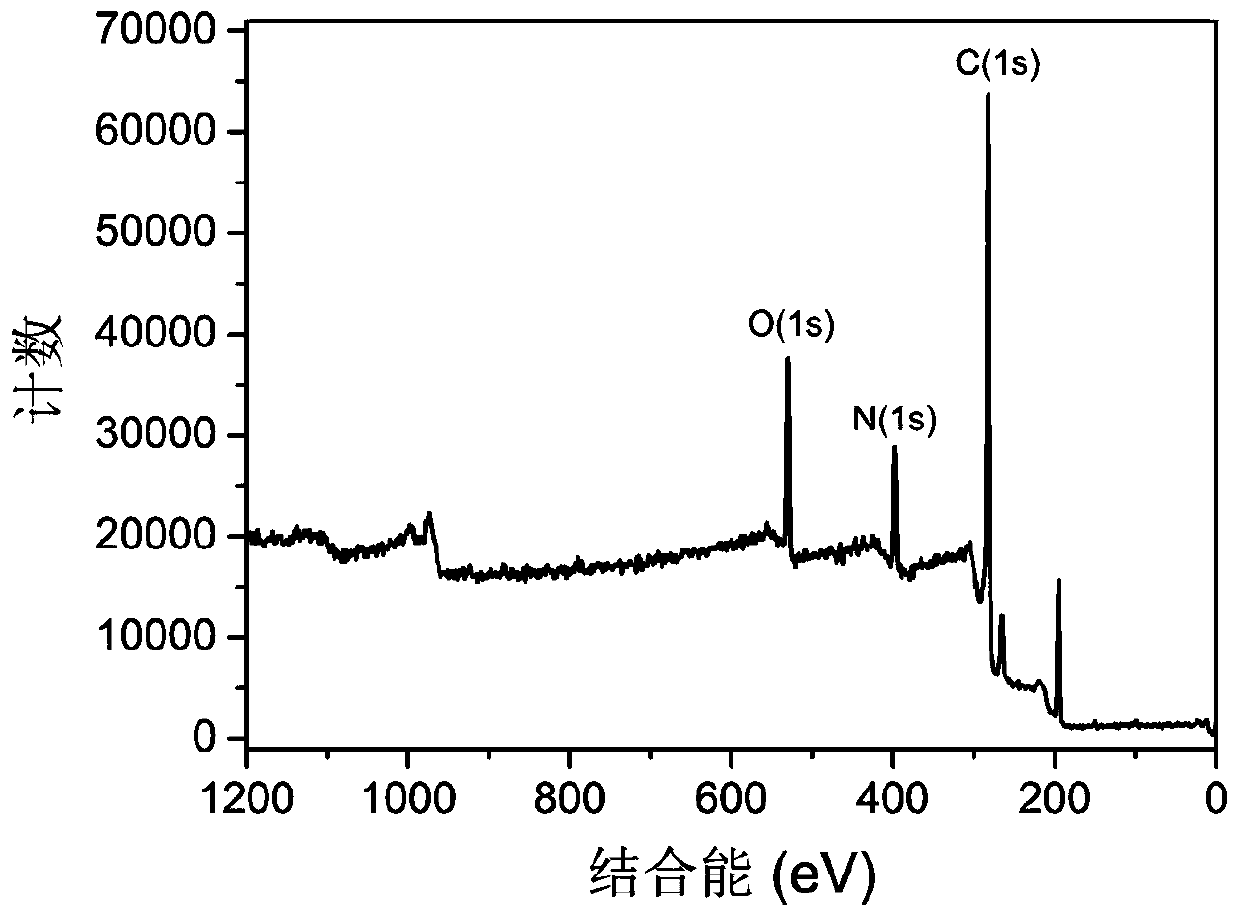pH-sensitive red light carbon quantum dots in weak acid mode and preparation method thereof
A technology of carbon quantum dots and patterns, applied in the field of pH-sensitive red light carbon quantum dots and their preparation, can solve problems such as limited application, and achieve the effects of wide response range, simple operation steps, good solubility and dispersibility
- Summary
- Abstract
- Description
- Claims
- Application Information
AI Technical Summary
Problems solved by technology
Method used
Image
Examples
Embodiment 1
[0022] The preparation of a pH-sensitive red light carbon quantum dot in weak acid mode in this embodiment includes the following steps:
[0023] 1) Weigh 216 mg of p-phenylenediamine and dissolve it in 10 mL of secondary water, then add 300 μL of concentrated HCl to the solution, and ultrasonically obtain a uniformly mixed solution.
[0024] 2) Transfer the above solution to a hydrothermal reaction kettle and react at 200°C for 10 hours. After the reaction stops, let it stand and cool to room temperature. Centrifuge to remove insoluble matter and take the supernatant, pass it through a 500-1000Da dialysis bag, and put it in a glass container. After at least three days of dialysis treatment, a pure aqueous solution of carbon quantum dots can be obtained.
[0025] 3) Freeze-drying the aqueous solution of carbon quantum dots to obtain purple powdery carbon quantum dots. Its relative quantum yield (based on rhodamine B) is 12.5%.
[0026] Structural characterization of the carb...
Embodiment 2
[0030] The preparation of a pH-sensitive red light carbon quantum dot in weak acid mode in this embodiment includes the following steps:
[0031] 1) Weigh 216 mg of p-phenylenediamine and dissolve it in 10 mL of secondary water, then add 250 μL of concentrated HCl to the solution, and ultrasonically obtain a uniformly mixed solution.
[0032] 2) Transfer the above solution to a hydrothermal reaction kettle, react at 210°C for 9 hours, wait for the reaction to stop and let it cool to room temperature, centrifuge to remove insoluble matter and take the supernatant, pass through a dialysis bag of 500-1000Da, and put it in a glass container After at least three days of dialysis treatment, a pure aqueous solution of carbon quantum dots can be obtained.
[0033] 3) Freeze-drying the aqueous solution of carbon quantum dots to obtain purple powdery carbon quantum dots. Its relative quantum yield (based on rhodamine B) is 9.1%.
Embodiment 3
[0035] The preparation of a pH-sensitive red light carbon quantum dot in weak acid mode in this embodiment includes the following steps:
[0036] 1) Weigh 216 mg of p-phenylenediamine and dissolve it in 10 mL of secondary water, then add 200 μL of concentrated HCl to the solution, and ultrasonically obtain a uniformly mixed solution.
[0037] 2) Transfer the above solution to a hydrothermal reaction kettle, react at 200°C for 8 hours, wait for the reaction to stop and let it cool to room temperature, centrifuge to remove insoluble matter, take the supernatant, pass through a 500-1000Da dialysis bag, and put it in a glass container After at least three days of dialysis treatment, a pure aqueous solution of carbon quantum dots can be obtained.
[0038] 3) Freeze-drying the aqueous solution of carbon quantum dots to obtain purple powdery carbon quantum dots. Its relative quantum yield (based on rhodamine B) is 6.4%.
PUM
| Property | Measurement | Unit |
|---|---|---|
| size | aaaaa | aaaaa |
Abstract
Description
Claims
Application Information
 Login to View More
Login to View More - R&D
- Intellectual Property
- Life Sciences
- Materials
- Tech Scout
- Unparalleled Data Quality
- Higher Quality Content
- 60% Fewer Hallucinations
Browse by: Latest US Patents, China's latest patents, Technical Efficacy Thesaurus, Application Domain, Technology Topic, Popular Technical Reports.
© 2025 PatSnap. All rights reserved.Legal|Privacy policy|Modern Slavery Act Transparency Statement|Sitemap|About US| Contact US: help@patsnap.com



